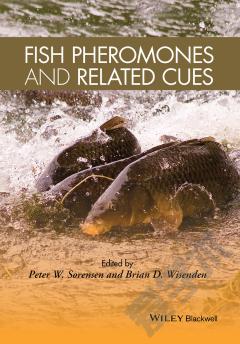Fish Pheromones and Related Cues
Pheromones are chemical cues that pass between members of the same species that convey specific, adaptive information. These cues, and related chemicals whose function are less well defined, are especially important to fishes because of their aquatic environments and complex behaviors. Pheromones are also of increasing interest in both basic and applied aspects of fish biology because they can be used to manipulate fish behavior and may explain phenomena such as fishery collapse. Fish Pheromones and Related Cues provides a timely synthesis of this growing body of research in freshwater and marine species and explores everything from how these chemical signals evolved, are produced, released and then processed, and finally to potential applications in fish culture and conservation. Fish Pheromones and Related Cues opens with a useful overview on the theory of chemical communication and definitions. Chapters then progress by examining the biological importance of pheromones in inter- and intra-species communication, the role these chemical cues play in a variety biological functions from reproduction to predation, and then how they evolved and are detected and recognized by fish nervous systems. Final chapters provide valuable insight into how pheromones can be measured, how pheromonal disruption can explain effects of environmental pollution, and lastly how they pheromones are being applied in real-world efforts to culture fish species and to conserve our wild populations and control invasive species. With far-reaching economic, evolutionary and ecological implications, Fish Pheromones and Related Cues will be an essential volume for anyone working in the fields of chemical communication, fish biology, fisheries science, aquatic conservation, ecology, invasive species control, and aquaculture
{{comment.content}}








 京公网安备 11010802027623号
京公网安备 11010802027623号